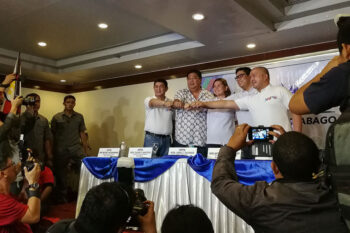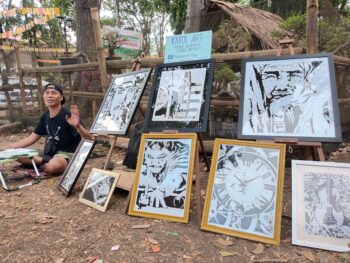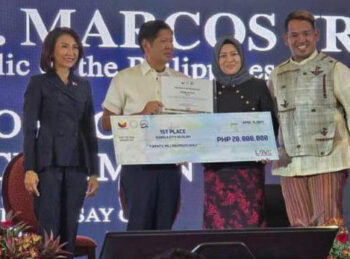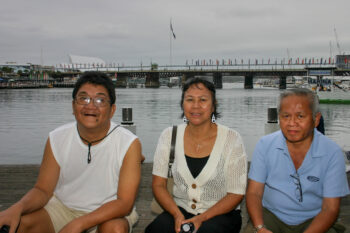MELBOURNE, Australia (MindaNews/05 July) — One reason why Filipinos are still wary of a charter change initiative could be the reality that this move has always been viewed as an underhanded scheme to extend the term of a sitting president.
President Ferdinand E. Marcos, Sr. (1965-1986) was able to do it in 1973, albeit with the help of Martial Law. President Fidel V. Ramos (1992-1998) tried it in 1997 with the help of a group called the People’s Initiative for Reform Modernization and Action (PIRMA). President Joseph Estrada (1998-2001) tried as well in 2000 with his Constitutional Correction for Development or CONCORD. President Gloria Macapagal-Arroyo (2001-2010) with the rabid support of then House Speaker Jose de Venecia tried her luck also in 2006 through a purported, but actually government led, people’s initiative called Sigaw ng Bayan.
Unfortunately, the last three presidents in this list not only failed in their attempts to change the constitution, but they also failed in changing the people’s negative attitude towards constitutional reform. And as to whether the popularity of President Rodrigo Duterte can help him and his team of federalists punch through the barricades put up by doubters and opponents alike, this remains to be seen.
But the biggest hurdle to constitutional reform is the Filipino’s level of ignorance of the constitution itself. I am boldly making this supposition because I know for a fact that many Filipinos are not aware of the significance of February 2.
To remember this particular date is extremely important because it is said that a nation’s relationship to its constitution plays a huge part in its evolution as a democratic republican state. A country that genuinely values its constitution would be more orientated towards the rule of law than one that does not. Indeed, a society that truly believes in constitutional values will be most likely more inclusive than one that does not. Therefore, a nation which treats its constitution both as a foundational document and as an existential guide to political life will be at a high stage of democratic maturity. Sadly, Filipinos may not be at this level yet. Let me elaborate on this further.
Pursuant to Proclamation No. 211 series of 1988 issued by President Cory Aquino, February 2 is officially designated as Constitution Day in the Philippines. The purpose of establishing this special day is as follows—
“WHEREAS, in order to instill in the hearts and minds of the Filipino people the democratic principles and the noble and lofty ideals enshrined in the Constitution, it is but fitting that a day be set aside as CONSTITUTION DAY to give the Filipino people the opportunity to consecrate and dedicate themselves to the Constitution and ponder on the significance thereof.”
I conducted an informal survey in my immediate community to determine the level of awareness about our nation’s Constitution Day. The results are pathetic and revealing at the same time. An uncle of mine summarized it quite well—“The meaning of Constitution Day to many of our people is as murky as the polluted Pasig River.”
Relatives who work in government have told me that they do not do anything special to commemorate Constitution Day. Colleagues and friends employed in top universities in the country told me exactly the same story. Surprisingly, it seems that even law schools do not even recognize the significance of this day. And it is deeply unfortunate that primary and secondary schools do not use this occasion to improve our youth’s knowledge and comprehension of our Constitution. However, the most disappointing result is that practically all of the people I asked were not even aware that February 2 is designated as Constitution Day.
The 1987 Constitution is the utmost symbol of Philippine statehood. It is the central institution in our political system. Hence, it is utterly incredible how February 2 easily slips past our collective minds every year. It becomes even more embarrassing knowing that both our former colonizers actually celebrate a Constitution Day. Americans celebrate this occasion on September 17. Curiously, this holiday is not observed by giving the day off to workers. The significance of this day is commemorated by (re)educating the populace about the United States Constitution.
Government institutions are required to hold programs that highlight the history of the American Constitution. Schools and universities are likewise obliged to conduct activities that promote the values and principles enshrined in the constitution. One the other hand, Spain celebrates its Constitution Day on December 6. Not surprisingly, this day means no work for all people. Nonetheless, this time is also used to enhance the community’s understanding and appreciation of the national constitution.
Given the ignorance and indifference to our Constitution Day unravelled by my informal survey, it appears that the “democratic principles” and the “noble and lofty ideals” enshrined in this sublime document are not yet properly instilled in our hearts and minds. Public survey results sadly confirm this.
In 2002, a Social Weather Station poll showed that three out of four Filipinos readily admit that they need to be better informed about the Constitution. Whereas a 2014 Pulse Asia “Ulat ng Bayan” survey showed that 70% of Filipinos have “little or no knowledge” about our charter. These numbers do not inspire confidence at all on the polity’s readiness for constitutional reform.
The knock-out blow would be the deafening silence from pundits and commentators on the very distinct possibility that the Chief Executive, the Senate President and Speaker of the House will all be standing members of the same political party. For the critical question to ask here is, will the constitutional principles of separation of powers and check and balance still function? Indeed, from the constitutional stand-point, this scenario is utterly objectionable.
In view of the Filipino’s still precarious relationship with the Constitution, I reiterate the suggestion for avid proponents of constitutional reform in the administration to initiate first a preparatory step in the form of a massive civic education campaign on constitutional principles for local communities. I predict that after undergoing this political exercise, Filipinos from Batanes to Tawi-Tawi, will be able to see themselves not merely as passive observers in the sidelines but as continuing stakeholders to the enforcement of constitutional rules and tenets. And I truly believe that it is only upon reaching such a level of constitutional awareness can Filipinos confidently undertake the constitutional revision process. (MindaViews is the opinion section of MindaNews. Atty. Michael Henry Ll. Yusingco is a practicing lawyer. He is presently completing a Masters of Law and Development in Melbourne Law School. He recently published a book entitled, Rethinking the Bangsamoro Perspective.)







